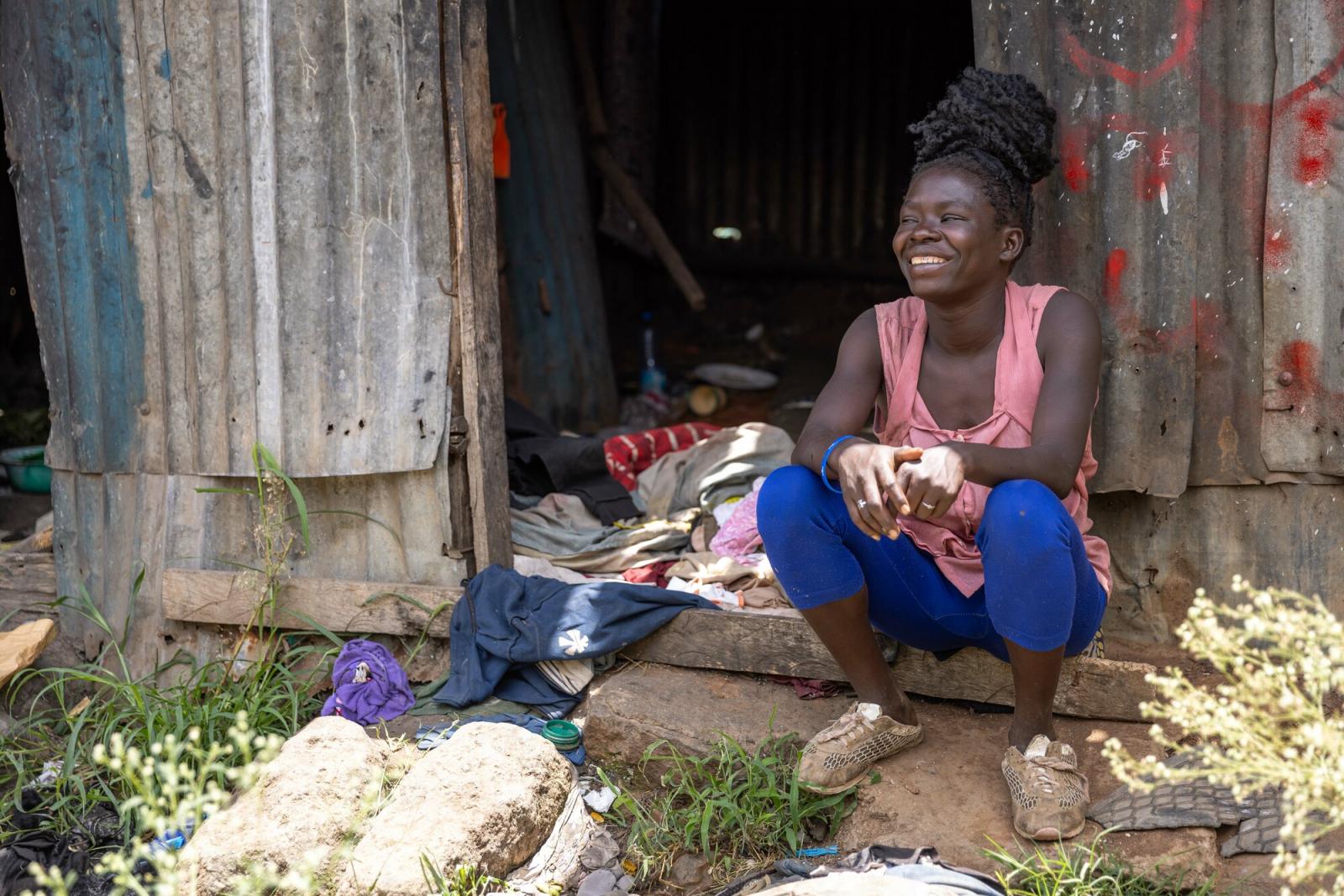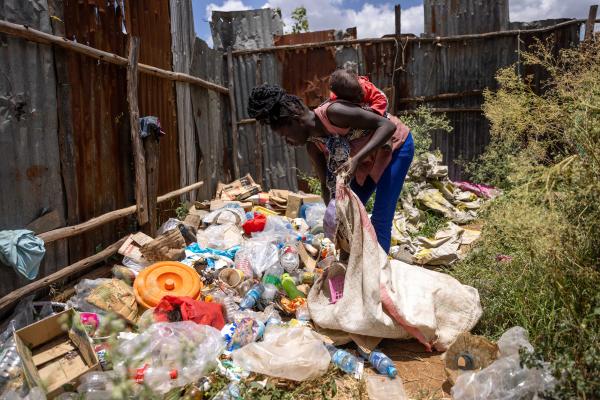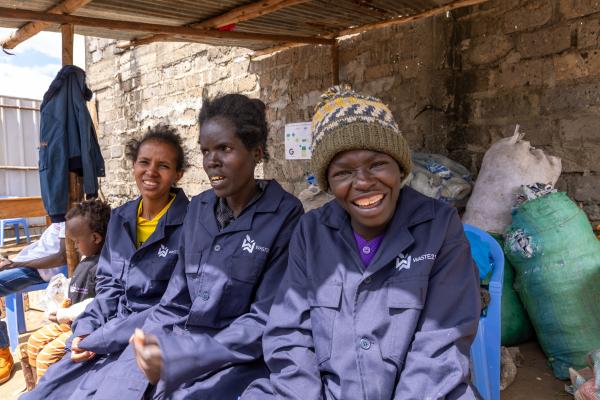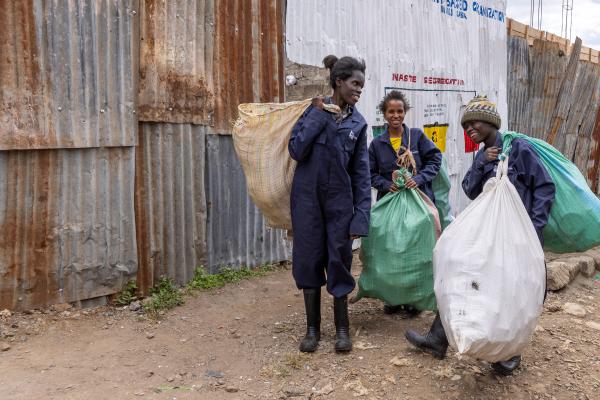
This Christmas, send a gift to help make sure women’s hopes of a better life aren’t thrown away.
You can help change the futures of waste pickers who work on Kenya’s rubbish dumps. It’s an essential but dangerous job, yet women aren’t being paid enough to feed themselves or their families.
VSO volunteers are helping waste pickers transform waste into wages, but we can’t do it alone. Will you help?

Women in Kenya are in a desperate situation. Every day, they work as waste pickers on Africa’s largest dumpsites, making money to feed themselves and their families. But working here means they’re in danger of disease, abuse and exploitation.
The Kibera and Dandora slums in Nairobi are home to the largest dumpsites in Africa.1 But these dumpsites are so much more to the people who live in the slums.
The residents of Kibera and Dandora are enterprising and resourceful, and some make money by picking and sorting through waste on the dumpsites and cleaning up their communities.
Many people in the slums live in very small homes with no access to clean water or electricity. The waste from the dumpsites can spill into people’s homes. Sorting and recycling waste in the dumps is a way to make enough money to feed their families.

The dumpsites are dirty, smelly and dangerous. Waste pickers can cut themselves on glass, and they don’t have any PPE to protect them, so they’re vulnerable to catching diseases and becoming very sick.
Many female waste pickers have little choice but to bring their children to the dumpsites. Machines and trucks work on the sites, and there have been tragic accidents. Once they’re done, waste pickers take their collected waste to a broker who then sells it to recycling centres, but all they’re given for their hard work is low prices and abuse.
Female waste pickers in particular are not welcome in this industry – they’re judged by the community and many call them dirty, or bad mothers. It must feel hopeless.
You can help ensure women’s futures aren’t thrown away
With your donation, volunteers in Kenya can equip waste pickers with overalls, gloves and gum boots so they can work on the dumpsites safely. This will mean they’re protected from cutting themselves and getting ill.

VSO volunteers can also train waste pickers how to sort the waste so they can pick the most profitable items, and connect them with buyback centres that will give them a good price.
Before, female waste pickers would get 15 shillings (around 8 pence) for a kilo of waste. Now, they get 28 shillings (around 16 pence) per kilo. Doreen, a waste picker who lives and works in Kibera, tells us:
"Thanks to VSO, I’ve learnt about saving…this has really helped me. Before, providing food for my children was a big challenge. Through the training, I was able to save, feed my family, and what I’m able to set aside, I use for my child’s schooling.”
Making more money also means they can also pay for childcare, meaning they don’t need to bring their children to the dumpsites anymore.
VSO has an ambitious plan to help 3,900 waste pickers to improve their livelihoods and for 6,000 tonnes of waste to be collected. Will you help?
Please, donate today, and help make sure women’s futures aren’t thrown away.
